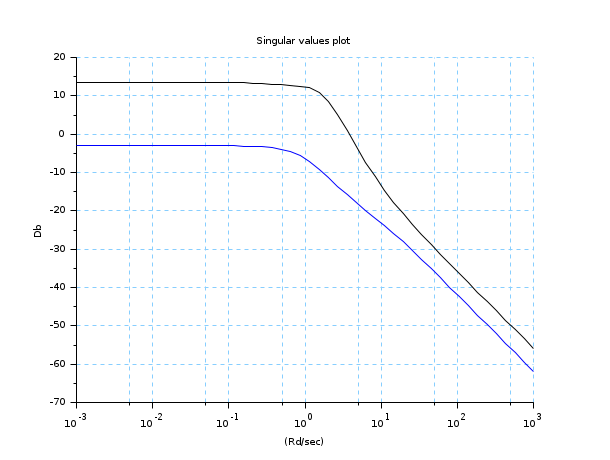Please note that the recommended version of Scilab is 2026.0.1. This page might be outdated.
See the recommended documentation of this function
svplot
singular-value sigma-plot
Calling Sequence
[SVM]=svplot(sl,[w])
Arguments
- sl
syslinlist (continuous, discrete or sampled system)- w
real vector (optional parameter)
Description
computes for the system sl=(A,B,C,D)
the singular values of its transfer function matrix:
G(jw) = C(jw*I-A)B^-1+D or G(exp(jw)) = C(exp(jw)*I-A)B^-1+D or G(exp(jwT)) = C(exp(jw*T)*I-A)B^-1+D
evaluated over the frequency range specified by w. (T is the sampling
period, T=sl('dt') for sampled systems).
sl is a syslin list representing the system
[A,B,C,D] in state-space form. sl can be continuous or
discrete time or sampled system.
The i-th column of the output matrix SVM contains the singular
values of G for the i-th frequency value w(i).
SVM = svplot(sl)
is equivalent to
SVM = svplot(sl,logspace(-3,3)) (continuous)
SVM = svplot(sl,logspace(-3,%pi)) (discrete)
Examples
x=logspace(-3,3); y=svplot(ssrand(2,2,4),x); clf();plot2d1("oln",x',20*log(y')/log(10)); xgrid(12) xtitle("Singular values plot","(Rd/sec)", "Db");

| Report an issue | ||
| << show_margins | Plot and display | zgrid >> |